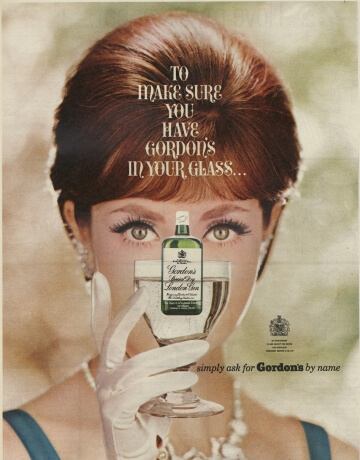Reflection of “As I Unscrew: A Letter”
As I Unscrew A Letter
Laurence Ross’s “As I Unscrew: A Letter” is a symbolic creative essay/letter, that provides an insightful look into the internalization that occurs within addiction.
In the beginning of Ross’s essay, he creates a symbolic image for the feelings his addiction has on others, as well as himself with the use of the bottle of gin.
“As I unscrew the cap to the bottle of Gordon’s gin, the boar’s head on the label looks appalled, it’s eye a wide dilated circle of disbelief”(1).
Ross uses personification of the substance to demonstrate reality.
Ross isn’t really speaking of the Gin, he’s referring to Karen, yet he is unable to be honest about the effect his substance abuse has on others.
The sentences Ross puts in parentheses, serve as honest interjections amongst his torn dialogue.
“I look to see if I should make a mental note to buy more supplies at the store (I should) and if I should make a mental note to space out my martinis so they last the duration of the- a duration unknown- of the night ( I shouldn’t, because if worst comes to worst, I do not need olives or wedges of lime, and there is always vodka after all)” (1).
Honest Elegance
This illustrates Ross’s drinking honestly and with elegance whereas he creates a window into internalization.
His concerns pertain to alcohol alone, not the limes and the olives, not entertainment of party refreshments.
Ross compares his martini to something much larger.
He ponders,“the gin swirling and cloudy cold in the glass like St. Mary Lake with her glacial residue; as I unscrew” (1).
With this image Ross demonstrates that alcohol is not simply a form relaxation to him, that here as he unscrews.

Melting Into Intoxication
He becomes aware that the substance is far larger than him. Far more powerful. Ross melts into his intoxication.
He becomes glacial residue and is completely swallowed by the power of his substance abuse. Ross uses the word “unscrew” throughout his essay at pivotal points, in the begging, the middle and conclusion.
This creates an image to the reader of becoming undone.
Ross does this elegantly by simply flipping the order of the first sentence, and the personification no longer pertains to the alcohol itself, but to a person.
His use of the word in the beginning is literal but pertaining to his use of alcohol.
Be Astonished
Yet in the conclusion the reader receives the word with a tone of hurt and astonishing pain.
“When no one else is appalled but you, when no one else is appalled by the fact that I am standing at the counter unscrewing, when no one else cares how long we, how long I can keep this up? See you” (1).
We are let go swiftly, almost eased into the realization, yet it still hits.
The reader is suddenly dropped, with no question, with no more banter, no justifications, no more disguises, just merely purely appalled at what we have witnessed in the position of Karen.
The reader simultaneously experiences the evening from the point of view of Ross. His internalization becomes laid out flat, for the reader (Karen) to see.
There is no longer any manipulation. Nor dishonesty strong enough to debunk Karen’s reaction to his drunkenness, and the reality of his addiction.
Realty of Addiction
Over all “As I unscrew: A letter” creates an intimate narrative into the reality of addiction.
Also into the dishonesty within self that so often takes hold of an individual in addiction, furthermore making the battle for sobriety ever challenging even in spite of the apparent effect it has on the ones closest to the addict.
Elizabeth Jones | Guest Author

